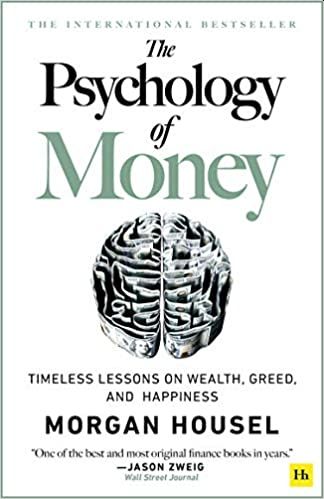In his book – The Psychology of Money, Morgan Housel provides a great illustration of paying the psychological price for higher returns. Here’s an excerpt from the book:
Say you want a new car. It costs $30,000. You have a few options: 1) Pay $30,000 for it. 2) Buy a used one for less than $30,000. 3) Or steal it. In this case, 99% of people avoid the third option, because the consequences of stealing a car outweigh the upside. This is obvious.
But say you want to earn a 10% annual return over the next 50 years. Does this reward come free? Of course not. Why would the world give you something amazing for free? Like the car, there’s a price that has to be paid.
The price, in this case, is volatility and uncertainty. And like the car, you have a few options: You can pay it, accepting volatility and uncertainty. You can find an asset with less uncertainty and a lower payoff, the equivalent of a used car. Or you can attempt the equivalent of grand theft auto: Take the return while trying to avoid the volatility that comes along with it.
Many people in this case choose the third option. Like a car thief — though well-meaning and law-abiding — they form tricks and strategies to get the return without paying the price. Trades. Rotations. Hedges. Arbitrages. Leverage.
But the Money Gods do not look highly upon those who seek a reward without paying the price. Some car thieves will get away with it. Many more will be caught with their pants down. Same thing with money.
This is obvious with the car and less obvious with investing because the true cost of investing — or anything with money — is rarely the financial fee that is easy to see and measure. It’s the emotional and physical price demanded by markets that are pretty efficient.
Monster Beverage stock rose 211,000% from 1995 to 2016. But it lost more than half its value on five separate occasions during that time. That is an enormous psychological price to pay. Buffett made $90 billion. But he did it by reading SEC filings 12 hours a day for 70 years, often at the expense of paying attention to his family. Here too, a hidden cost.
For all the latest news and podcasts, join our free newsletter here.
Don’t forget to check out our FREE Large Cap 1000 – Stock Screener, here at The Acquirer’s Multiple:




